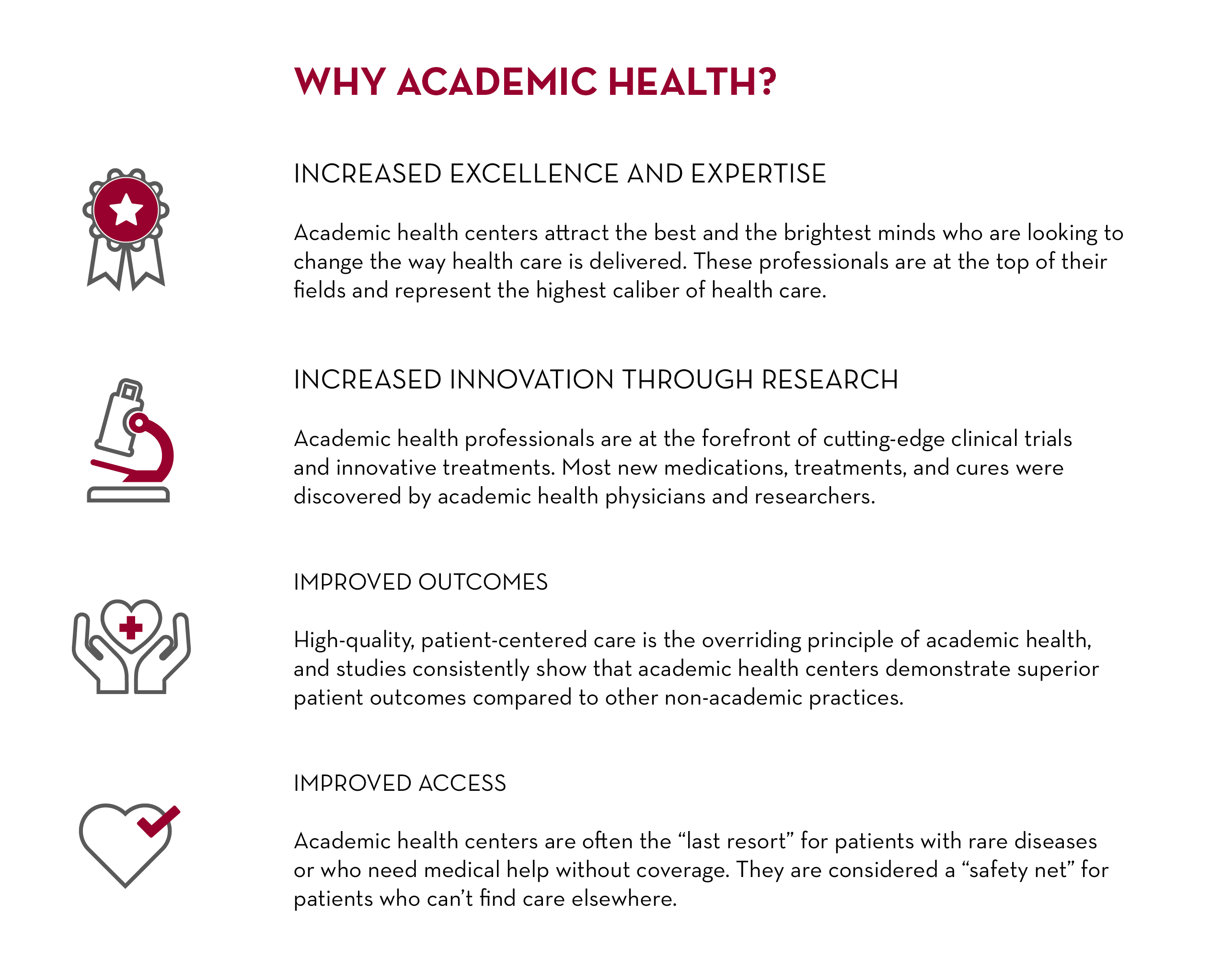What is Academic Health?
Most health care is practiced within what is called “the standard of care” - treatments that are proven to be generally effective and reliable. When a patient faces an illness that requires treatment that exceeds the standard of care, academic health can provide access to newer therapies.
Put simply, academic health means providing the highest level of care possible by driving innovation, improving access to care, and reducing burdens on patients and families.
Academic Health at the University of Minnesota
We have a long history of being a leader in academic health by treating patients and making discoveries that improve health care in Minnesota and around the world.
The University of Minnesota is one of the largest, most comprehensive academic health centers in the nation. With all six health sciences schools (dentistry, medicine, nursing, pharmacy, public health, and veterinary medicine), interdisciplinary centers, and affiliated programs working together in this University, we have unique opportunities to explore interprofessional health care models.
We take the toughest problems from the clinic and look for solutions in the laboratory. Many of our health care professionals — leaders in their fields — are also scientists, bringing tough problems from the bedside into the lab to find better solutions for patients.
The benefits of academic health are clear: from better patient outcomes, access to cutting-edge diagnostics, advanced treatments, specialized care and clinical trials, to healthier local communities statewide and health care advancements for future generations.

Where Discovery Creates Hope
With our many clinical partners, we bring cutting-edge care to communities statewide, giving more Minnesotans access to the benefits of our research. Our group practice, University of Minnesota Physicians, sees patients in every county across Minnesota annually. In Minnesota, academic health is in your backyard
Examples of Academic Health in Action for Minnesotans
Developing the Future of Academic Health
The University trains Minnesota’s health professional workforce, including 70% of physicians, 60% of pharmacists, 73% of dentists, 69% of public health professionals, and 70% of doctors of veterinary medicine. We also have the second largest full-time Doctor of Nursing Practice program in the country, offer Minnesota’s only PhD program in nursing, and were the first in the U.S. to offer a health coaching graduate degree.
The University of Minnesota partners with more than 2,500+ clinical training sites across the state to provide interdisciplinary training for Minnesota’s health care workforce, many in underserved and rural communities. See live, up-to-date clinical placements: